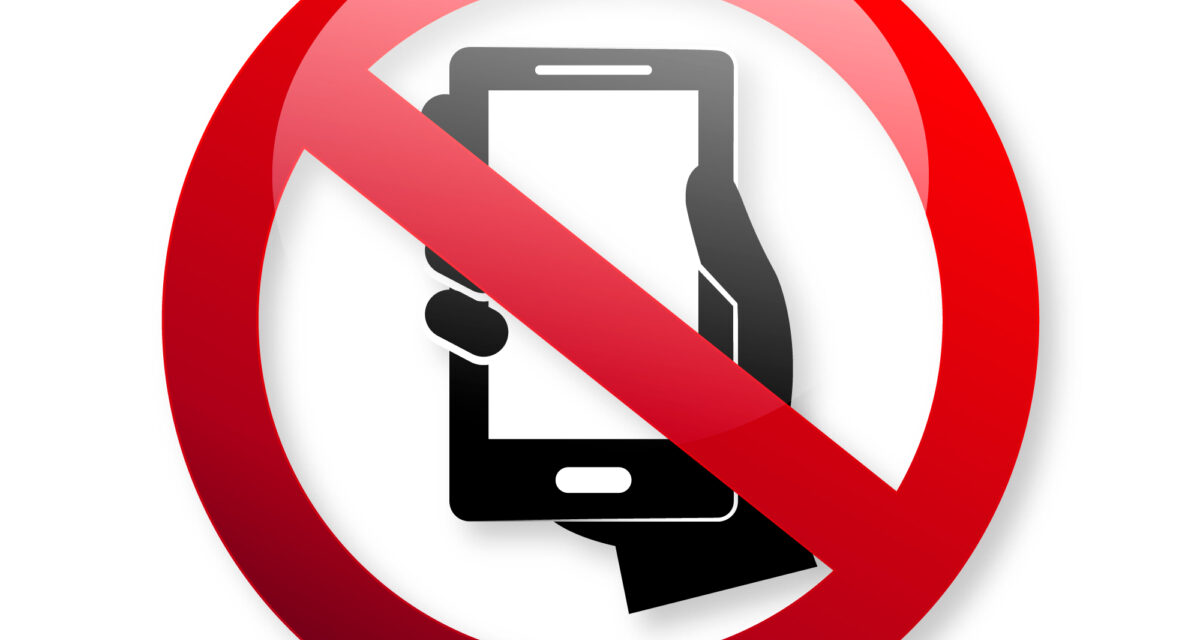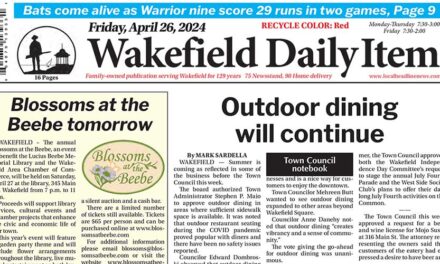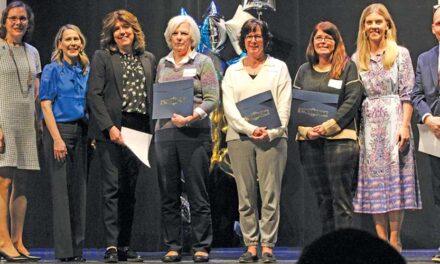By NEIL ZOLOT
WAKEFIELD — Galvin Middle School received a $25,000 grant from the state Department of Elementary and Secondary Education to curb and minimize students using cell phones starting in November, but School Committee members and parents expressed concern over the system that would have the phones in pouches with electronic locks, at the School Committee meeting Tuesday, September 26.
“Placing a phone in a pouch leads to several complications,” parent Mary Young feels. “First you’ve removed the opportunity to teach these children self-control at a vital age. The phones don’t belong to the school. They don’t belong to the child. They belong to the hard working adults who pay for the phones and have them for the reason of communication. What happens if my student forgets to unlock their pouch on their way out of school? Is the school willing to be responsible if my child could not contact myself or emergency services should an emergency arise?”
“When the middle school flooded, Galvin was a mess and we couldn’t find our kids,” parent Annie Dodge added. “People thought it was a lockdown or a school shooter. It can happen anytime and I want my child to have access.”
“I was glad my child was able to contact me during the water main break,” parent Dawn Millward chipped in.
School Committee member Eileen Colleran asked, “How is it parents are not allowed to opt out,” leading Superintendent Doug Lyons to concede “I think people are good on the intent, but need time to think it through.”
He thinks time and talking to authorities in other communities may help with that.
Cell phone use is an issue in schools, being a distraction or a tool for bullying, so much so that grants were available. “The state recognized this is an issue,” Galvin principal Megan Webb said.
It’s more of an acute problem in middle school. “One of the things we see is students with an incredible amount of technology who aren’t old enough to know how to use it appropriately,” Webb pointed out. “It’s difficult for them to use it productively in the school day. There’s so much that can be distracting. If we can prevent that, it’s good.”“Kids are reaching for their phone to see what’s happening socially and companies are experts in keeping eyes on screens,” Lyons added. “We’re trying to understand and know how we might better support kids in an academic environment.”
The system, provided by technology company Yondr and explained by their representative Matthew Army, involves giving each student a pouch in which to place their phone, fake phone, Apple watch and/or air buds at the beginning of a school day. It is then sealed at a magnetic station. Students can keep the pouch in their pockets or backpack or leave it in their lockers, as they are currently required to do with cell phones. At the end of the school day another scan at the magnetic station unlocks the pouch. Webb and Army said stations will be at various doors and probably the main office, nurse’s office and a few other places, but not in classrooms.
Velcro pouches will be provided to students who may need their phones for medical reasons and teachers. School Committee member Peter Davis asked how parents might opt out for non-medical reasons.
Webb answered there is no standard option for students who don’t need their phones for a specific reason, other than review on a case-by-case basis. “For some people it may be stressful, but we have lots of ways parents can get in touch with kids, via e-mail or messages through the main office,” she said.
If a student forgets to unseal their pouch, it can be done if the school is open later for an event. Webb doesn’t think that will be a problem. “Kids love their cell phones,” she said. “It’s hard to believe they’d forget.”
She also said if a student doesn’t seal their pouch, but leaves it and their phone in their locker no one will know or care.
Army reported 2,000 schools are cell phone free nationwide, including 25 in Boston. Of 900 schools surveyed by Yondr, 65% saw improvement in academic performance, 74% improvement in student behavior and 83% improvement in student participation in classrooms.
He also reported students are creative in decorating their pouches.
The idea of having teachers collect phones, as is done in some school systems, was rejected. “We steered away from that because it’s a tremendous amount of responsibility and not something our teachers were interested in,” Webb said.
Army added that would put responsibility for the phone on the teacher, not the intent of the pouch system.
The parents present conceded phone use can be a problem, but disagreed with the proposed system. “Limit use of phones by enforcing policies already in place,” Young said. “There should be a consequence for the first offense, an even bigger consequence for the second and perhaps just take the phone away and require parents to come to school to retrieve it. If a parent has to come to school more than once to retrieve the phone because the child was breaking the policy, then you’re going to see a lot of children being parented.”
“I trust my child not to take inappropriate pictures,” Dodge added. “It seems a little odd every child has to be subject to discipline when most aren’t doing anything wrong. It seems strange to me everyone gets the same sentence. It’s like a prison sentence.”
She also asked, “If phones are a problem will teachers use their phones?” to which Webb responded students and teachers are two different populations with different responsibilities.
Millward called the plan “unnecessary for those who follow the rules.”
In discussion between committee members Chair Amy Leeman suggested all students get velcro pouches which would make noise when opened, alerting a teacher of phone use. Army reiterated that would put the onus of use on the teacher.
He also said that would affect classrooms dynamics because some teachers would be more lax than others.
Davis said the pouches could be opened without being magnetically unlocked, which Army conceded could be done with scissors.
Perhaps oddly, he added students trying to figure out a way of opening the pouches are demonstrating critical thinking.
High school senior and student representative to the School Committee Ahmed Othman said when he was in middle school in Salem a similar system was tried but didn’t catch on with students. He feels students will find a way to skirt the system and open the pouches. He also suggested parents be given magnetic stations to unlock the pouches if their child forgets to at school.
Army responded it’s easy to tell if a student has tried to open the pouch by other means and the practice is to hold their phone for the day.
Colleran wondered how a student would find scissors during an emergency. “It’s not students getting to police but to parents in a school shooting,” she feels.
Member Kevin Fontanella, a teacher in Saugus, responded police want cell phones off during incidents and drills to maintain silence and avoid confusion.
“You want one stream of data in an emergency so you can respond appropriately,” Army elaborated.
“They don’t want parents flying down to a school,” Leeman added.
“I don’t care,” Colleran reacted. “I want to be able to talk to my kid.”
“We have to slow this down and learn more about it,” Lyons said as things wound down. “There’s no race to implement this.”
Millward asked if November implementation was still the plan.
Lyons answered he feels November is far enough away to answer the questions raised.





